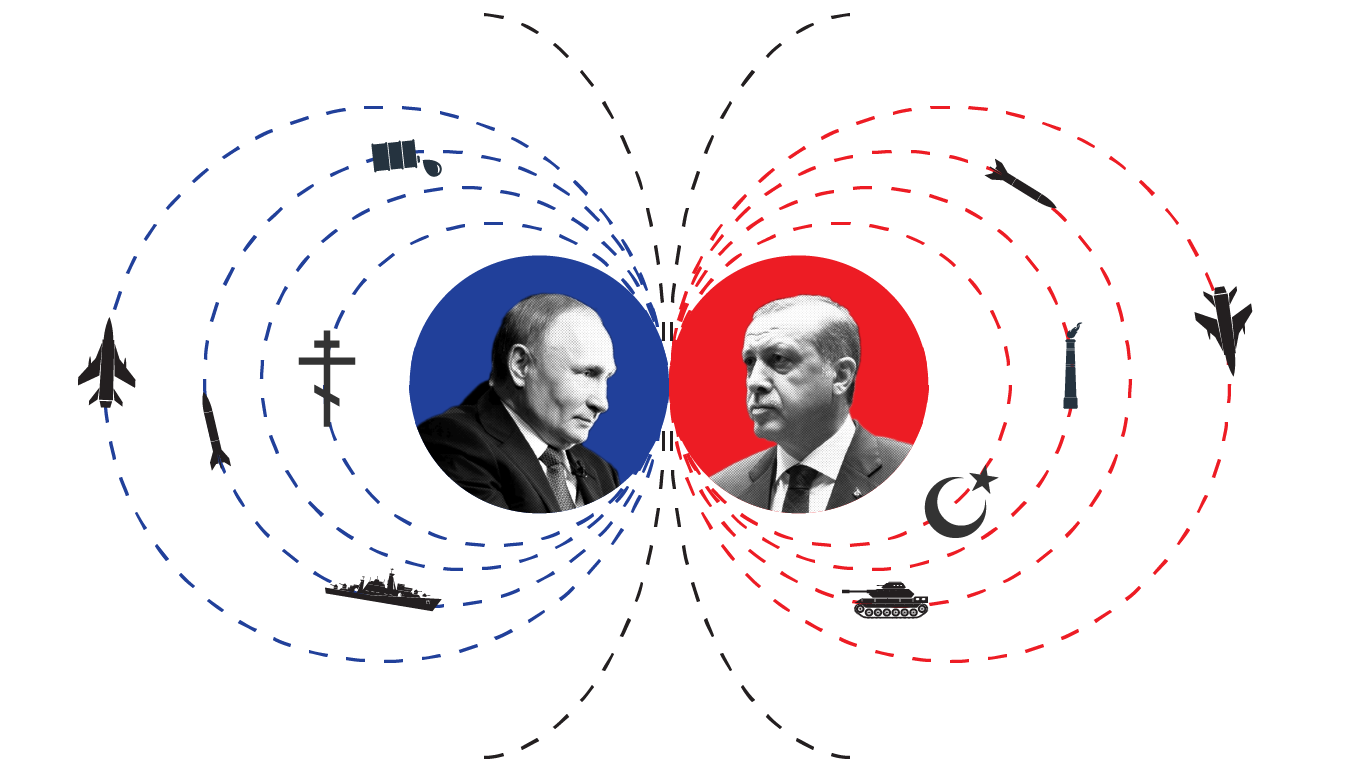A nation must think before it acts.
Executive Summary
The relationship between the Russian Federation and Republic of Turkey is one of the most important bilateral relationships in Eurasia today. The North Atlantic Treaty Organization’s (NATO) original adversary and one of its earliest members have in recent times veered sharply between cooperation—often against NATO’s interests—and competition so intense that it seemed war between them was possible. Politically, their leaders and their systems of government share a basic compatibility predicated on authoritarianism and resistance to what they claim is Western meddling in internal affairs. Militarily, Moscow and Ankara have at times cooperated closely. For instance, the two have worked to marginalize the U.S. military’s influence in Syria, and Turkey has purchased and deployed Russian S-400 air defense systems, putting its defense relationship with the United States in jeopardy. At other times, such as in the military escalation in Idlib (Syria), the Libyan Civil War, and the Armenia-Azerbaijan Conflict, the two have found themselves backing different sides and had to work assiduously to prevent a direct military clash. Economically, the relationship has been historically unbalanced in Russia’s favor, but Turkey’s increasing trade in services and emergence as an important energy storage and transport hub may change this. The two economies share a basic complementarity, with few areas where they compete in the production of goods and services. This dynamic may increase the ability of their economic relationship to act as a “shock absorber” and minimize the impact of disruptions in other facets of their ties. Overall, Moscow and Ankara have worked to emphasize areas of cooperation and “compartmentalize” areas of difference. Policymakers in Western capitals will need to develop an understanding of the drivers of the Russian-Turkish relationship and their effects on Western interests.





